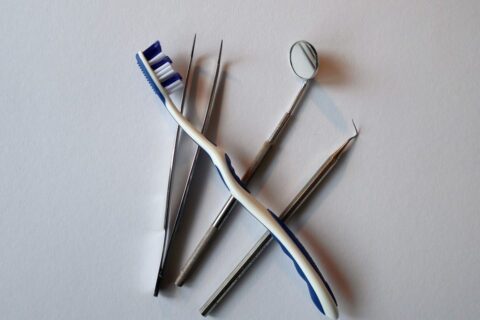Do You Have Sinus Pressure or a Toothache?

It’s possible that sinus inflammation or an infection can lead to a toothache, especially in your upper back teeth. The reason these teeth are most commonly affected is because your sinuses are closest to them. If you’ve been dealing with a toothache that doesn’t seem to be going away, you may want to book an appointment with your dentist. You may also need to troubleshoot an unrelated problem that could be causing a toothache.
Common Causes of Toothache
According to the Mayo Clinic, there are several causes of toothache, including sinus infection and sinus pressure, tooth grinding, periodontal disease, abscesses, and cavities. Ruling out certain problems will narrow down what’s really going on.
A sinus infection can cause sinus pressure and tooth or mouth pain because of the pressure that’s put on the maxillary sinuses, which can be found behind your cheek bones. It’s common to confuse sinus pain with other common causes of toothaches, like decay or an impacted wisdom tooth.
Common Causes of Sinus Infection
If nasal bacteria somehow gets into your sinuses, this can cause a sinus infection. Symptoms of sinus infection include pain in the cheekbones, eyes and upper back teeth. If you have a toothache but it’s not accompanied by pain the cheekbones or eyes, it’s possible your toothache is not caused by a sinus infection. Additional symptoms of sinus infection may include fever, bad breath, nasal discharge, and stuffy nose. You may also notice that the pain is worse when you sit up than when you lay down, and it’s also possible that your cheekbones will be swollen or red.
Treating Sinus Pain
To determine whether or not your toothache is sinus-related, you’ll want to first treat the possible sinus infection. Treatments include nasal sprays, humidifiers, apple cider vinegar, decongestants and antibiotics.
An over-the-counter decongestant will restrict blood flow to the sinus cavities, which will help the inflamed sinuses go back to their normal size. You can get decongestants in many forms, including pills, liquids or nasal drops or sprays. Don’t over-use decongestants, which can actually make the problem worse instead of better. An expectorant can have a similar affect by draining mucus from the nasal cavities, which dries out the cavity and alleviates the pressure. Again, expectorants should only be used for a short period of time.
If these treatments don’t take care of the tooth pain, it’s possible the issue is oral instead of sinus-related.
Other Dental Problems
If you’re not dealing with a sinus issue, or if you’re having tooth pain related to something other than an infection, your dentist will want to assess you to rule out causes. You could have tooth damage, which is when a tooth becomes decayed or fractured resulting in symptoms that are very similar to those of a sinus infection. If you grind your teeth, you can have pain that’s similar to pain from a sinus infection. It’s also possible that you have gum disease, which can cause tooth pain that feels like a sinus infection.
Treating Dental Conditions
If you’re dealing with a sinus infection, an antihistamine or antibiotic could solve the problem. If you grind your teeth, a mouth guard that you wear at night could stop the grinding and the related pain. Tooth damage or decay will require dental care like a filling, a crown, a root canal, or an extraction.
Next Steps
Get in touch with your dentist right away if you’ve been struggling with a toothache. Since sinuses and teeth are connected, an infection in one place can lead to an infection in another. If your dentist is not able to locate the cause of your toothache, get in touch with your doctor, who may be able to determine the cause.
If you’re dealing with sinus pressure or a toothache, Midway Family and Cosmetic Dentistry may be able to help. Contact us today.


